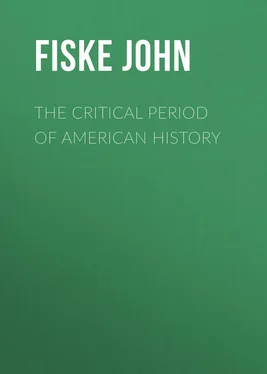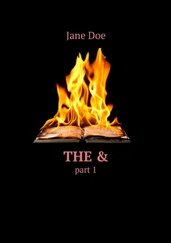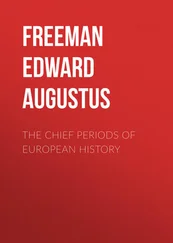John Fiske - The Critical Period of American History
Здесь есть возможность читать онлайн «John Fiske - The Critical Period of American History» — ознакомительный отрывок электронной книги совершенно бесплатно, а после прочтения отрывка купить полную версию. В некоторых случаях можно слушать аудио, скачать через торрент в формате fb2 и присутствует краткое содержание. Жанр: История, foreign_antique, foreign_prose, на английском языке. Описание произведения, (предисловие) а так же отзывы посетителей доступны на портале библиотеки ЛибКат.
- Название:The Critical Period of American History
- Автор:
- Жанр:
- Год:неизвестен
- ISBN:нет данных
- Рейтинг книги:3 / 5. Голосов: 1
-
Избранное:Добавить в избранное
- Отзывы:
-
Ваша оценка:
- 60
- 1
- 2
- 3
- 4
- 5
The Critical Period of American History: краткое содержание, описание и аннотация
Предлагаем к чтению аннотацию, описание, краткое содержание или предисловие (зависит от того, что написал сам автор книги «The Critical Period of American History»). Если вы не нашли необходимую информацию о книге — напишите в комментариях, мы постараемся отыскать её.
The Critical Period of American History — читать онлайн ознакомительный отрывок
Ниже представлен текст книги, разбитый по страницам. Система сохранения места последней прочитанной страницы, позволяет с удобством читать онлайн бесплатно книгу «The Critical Period of American History», без необходимости каждый раз заново искать на чём Вы остановились. Поставьте закладку, и сможете в любой момент перейти на страницу, на которой закончили чтение.
Интервал:
Закладка:
It was doubtless for these reasons that the king, when it became clear that a new government must be formed, made up his mind that Lord Shelburne would be the safest man to conduct it. In his hands the Whig power would not be likely to grow too strong, and dissensions would be sure to arise, from which the king might hope to profit. The first place in the treasury was accordingly offered to Shelburne; and when he refused it, and the king found himself forced to appeal to Lord Rockingham, the manner in which the bitter pill was taken was quite characteristic of George III. He refused to meet Rockingham in person, but sent all his communications to him through Shelburne, who, thus conspicuously singled out as the object of royal preference, was certain to incur the distrust of his fellow ministers.
Political instability of the Rockingham ministry.
The structure of the new cabinet was unstable enough, however, to have satisfied even such an enemy as the king. Beside Rockingham himself, Lord John Cavendish, Charles Fox, Lord Keppel, and the Duke of Richmond were all Old Whigs. To offset these five there were five New Whigs, the Duke of Grafton, Lords Shelburne, Camden, and Ashburton, and General Conway; while the eleventh member was none other than the Tory chancellor, Lord Thurlow, who was kept over from Lord North's ministry. Burke was made paymaster of the forces, but had no seat in the cabinet. In this curiously constructed cabinet, the prime minister, Lord Rockingham, counted for little. Though a good party leader, he was below mediocrity as a statesman, and his health was failing, so that he could not attend to business. The master spirits were the two secretaries of state, Fox and Shelburne, and they wrangled perpetually, while Thurlow carried the news of all their quarrels to the king, and in cabinet meetings usually voted with Shelburne. The ministry had not lasted five weeks when Fox began to predict its downfall. On the great question of parliamentary reform, which was brought up in May by the young William Pitt, the government was hopelessly divided. Shelburne's party was in favour of reform, and this time Fox was found upon the same side, as well as the Duke of Richmond, who went so far as to advocate universal suffrage. On the other hand, the Whig aristocracy, led by Rockingham, were as bitterly opposed as the king himself to any change in the method of electing parliaments; and, incredible as it may seem, even such a man as Burke maintained that the old system, rotten boroughs and all, was a sacred part of the British Constitution, which none could handle rudely without endangering the country! But in this moment of reaction against the evil influences which had brought about the loss of the American colonies, there was a strong feeling in favour of reform, and Pitt's motion was only lost by a minority of twenty in a total vote of three hundred. Half a century was to elapse before the reformers were again to come so near to victory.
But Lord Rockingham's weak and short-lived ministry was nevertheless remarkable for the amount of good work it did in spite of the king's dogged opposition. It contained great administrative talent, which made itself felt in the most adverse circumstances. To add to the difficulty, the ministry came into office at the critical moment of a great agitation in Ireland. In less than three months, not only was the trouble successfully removed, but the important bills for disfranchising revenue officers and excluding contractors from the House of Commons were carried, and a tremendous blow was thus struck at the corrupt influence of the crown upon elections. Burke's great scheme of economical reform was also put into operation, cutting down the pension list and diminishing the secret service fund, and thus destroying many sources of corruption. At no time, perhaps, since the expulsion of the Stuarts, had so much been done toward purifying English political life as during the spring of 1782. But during the progress of these important measures, the jealousies and bickerings in the cabinet became more and more painfully apparent, and as the question of peace with America came into the foreground, these difficulties hastened to a crisis.
Obstacles in the way of a treaty of peace.
From the policy which George III. pursued with regard to Lord Shelburne at this time, one would suppose that in his secret heart the king wished, by foul means since all others had failed, to defeat the negotiations for peace and to prolong the war. Seldom has there been a more oddly complicated situation. Peace was to be made with America, France, Spain, and Holland. Of these powers, America and France were leagued together by one treaty of alliance, and France and Spain by another, and these treaties in some respects conflicted with one another in the duties which they entailed upon the combatants. Spain, though at war with England for purposes of her own, was bitterly hostile to the United States; and France, thus leagued with two allies which pulled in opposite directions, felt bound to satisfy both, while pursuing her own ends against England. To deal with such a chaotic state of things, an orderly and harmonious government in England should have seemed indispensably necessary. Yet on the part of England the negotiation of a treaty of peace was to be the work of two secretaries of state who were both politically and personally hostile to each other. Fox, as secretary of state for foreign affairs, had to superintend the negotiations with France, Spain, and Holland. Shelburne was secretary of state for home and colonial affairs; and as the United States were still officially regarded as colonies, the American negotiations belonged to his department. With such a complication of conflicting interests, George III. might well hope that no treaty could be made.
Читать дальшеИнтервал:
Закладка:
Похожие книги на «The Critical Period of American History»
Представляем Вашему вниманию похожие книги на «The Critical Period of American History» списком для выбора. Мы отобрали схожую по названию и смыслу литературу в надежде предоставить читателям больше вариантов отыскать новые, интересные, ещё непрочитанные произведения.
Обсуждение, отзывы о книге «The Critical Period of American History» и просто собственные мнения читателей. Оставьте ваши комментарии, напишите, что Вы думаете о произведении, его смысле или главных героях. Укажите что конкретно понравилось, а что нет, и почему Вы так считаете.












